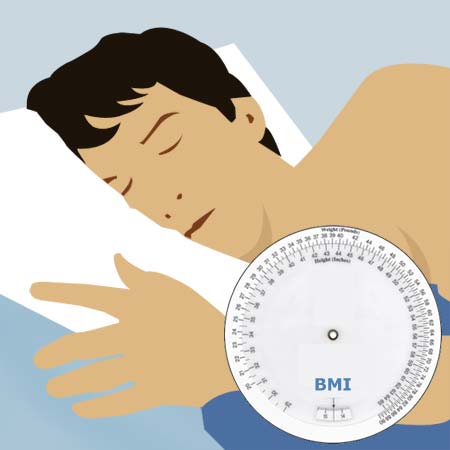If your grandma told you that your weight is affected due to long or short hours of sleep, then you might want to buy her point. As per a new research abstract, habitual sleep duration has been linked to variations in Body mass index (BMI).
The Research abstract is to be presented at SLEEP 2009, the 23rd Annual Meeting of the Associated Professional Sleep Societies today. The research observed that twins who slept between 7 and 8.9 hours each night resulted in a lower mean BMI (25.0 kg/m2) in comparison to those who regularly slept either more (25.2 kg/m2) or less (26.4 kg/m2) per night.
The Research noticed that under controlled genetics and shared environment, the link between BMI and sleep duration remained significant. Lead author Nathaniel Watson, MD, co-director at the University of Washington Sleep Institute in Seattle hinted that BMI and weight has a considerable impact due to sleep habits.
“Findings of the study point towards an environmental cause of the relationship between sleep duration and BMI,” mentioned Watson. “Results were robust enough to be present when the sample was limited to identical twins.”
Data from 1,797 twins, including 634 twin pairs (437 monozygotic, 150 dizygotic and 47 indeterminate pairs) and 529 individual twins with a mean age of 36.8 years were taken for the study. The researchers calculated habitual sleep duration through the self-reported length of sleep per night and the self-reported height and weight aided in calculation of BMI. The research involved female population of 68.3 percent and 88.2 percent were Caucasians.
As per American Academy of Sleep Medicine, there have been previous studies that have noticed that adults whose sleep duration deviates from the recommended 7 to 8 hours a night could be raising their risk of serious health conditions.

